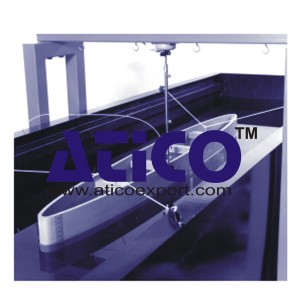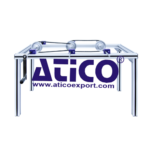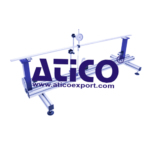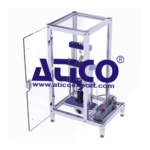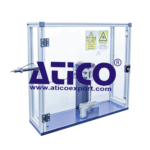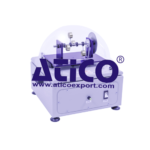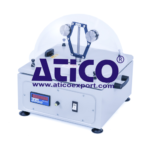Ship Vibration Apparatus
Technical Description:
This is used to investigate the dynamic behaviour of a ship structure. It therefore allows the first steps in the area of experimental vibration analysis or modal analysis. Experimental vibration analysis is an indispensible element of modern shipbuilding development activity. This trainer allows the natural frequencies and modes of the model ship to be measured and recorded. The simple, stylised ship form simplifies the mathematical resolution of the problem. The model ship and an electrodynamic exciter are attached to a height adjustable cross beam. The beam has a high natural frequency that doesn’t interfere with the measurements. A function generator creates different exciter signals: sinusoidal, triangular and rectangular signals. The frequency, amplitude and offset are adjustable. An acceleration sensor at various points measures the response of the model to the vibrations generated. For experiments in water, a tank is required (not included).
Specification:
1. Vibration behaviour of a model ship in air or in water (with additional tank)
2. Frame with height adjustable cross beam
3. High natural frequency of cross beam due to closed box beam section with high rigidity and low weight
4. Plastic model ship with elliptical half-breadth plan and 9 deck stringers
5. Capacitive acceleration sensor with measuring amplifier
6. Exciter with co-ordinated power amplifier and function generator: sinusoidal, triangular or rectangular signal
7. Representation of measuring values on an oscilloscope possible (not included)
Technical Data:
Exciter
– electrodynamic type with permanent magnet
– max. force: 8.9N
– frequency range: 5…12,000Hz
Function generator
– frequency, amplitude and offset adjustable
– output: 0…10Vpp, 50 Ohm
Acceleration sensor
– measuring range: +/-5g
– frequency range: 0…400Hz
Model ship
– deck stringer with fastening holes for sensors and suspension

